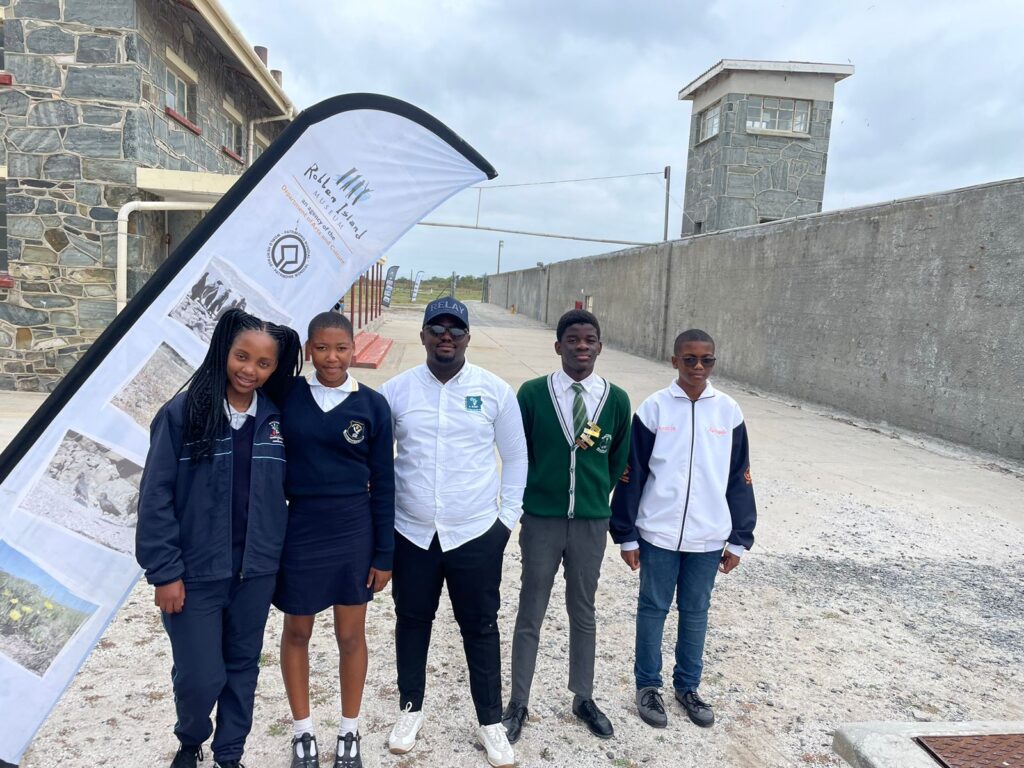
During the final week of September, high school learners from all around Southern Africa came to Robben Island to learn how to code through entertaining games.
The biennial Robben Island Museum Spring School program, held in late September on Robben Island in Cape Town, helped to shape the future leaders of Africa via tangible Africa.
It was the first time that the renowned youth development program, which has been held at the Robben Island Museum since 1998, had extended an invitation to Tangible Africa, an engagement project of the Nelson Mandela University Computing Sciences Department and the Leva Foundation non-profit organisation based in Gqeberha.
In an effort to cultivate a new generation of heritage activists, more than seventy high school learners from African nations—South Africa, Namibia, Eswatini, Lesotho, Zimbabwe, and Botswana—in grades 10 and 11 participated in the program.
Leveraging youth innovation for sustainable growth was the subject of this year’s theme, “Youth-Driven Innovation: Pioneering Sustainable Development in Africa, Celebrating 30 Years of South African Democracy.”
The coordinator of the Tangible Africa Project, Lizwi Gwaza, indicated that learners had the option to choose from a variety of learning areas to engage in throughout the week, in addition to experiences such as the Prison Experience, which immersed them in a day in the life of a political prisoner.
Science and agriculture, heritage workshops, business innovation, journalism, debating, and engagement with former political prisoners on Umrhabulo were among them. Integrational discourse sessions were also featured.
“I am helping students from South Africa, Zimbabwe, Lesotho, and Eswatini learn about design thinking in the computer education study area. They pinpoint issues in their nations, regions, or localities, then devise a creative application to address those issues,” added Gwaza.
Rangers is one of the tangible coding games that Tangible Africa utilises to teach and promote computational thinking and problem-solving abilities throughout Africa.
Gwaza and the team also exposed the learners to it.
https://www.goodthingsguy.com/lifestyle/youth-leaders-learn-to-code-on-robben-island/
Editor’s note: Rangers is one of the tangible coding games that Tangible Africa utilises to teach and promote computational thinking and problem-solving abilities throughout Africa.
Description: In an effort to cultivate a new generation of heritage activists, more than seventy high school students from African nations—South Africa, Namibia, Eswatini, Lesotho, Zimbabwe, and Botswana—in grades 10 and 11 participated in the program.
Editor: Thato Mahlangu
Project manager: Do4SA
Do4SA NPC
Standard Bank
Branch: 024210
Acc. Number: 371 278 627
Swift Address: SBZA ZA JJ
Subscribe to The Altruist monthly newsletter which will help decision-makers gain a ground level understanding of the dynamics of poverty.